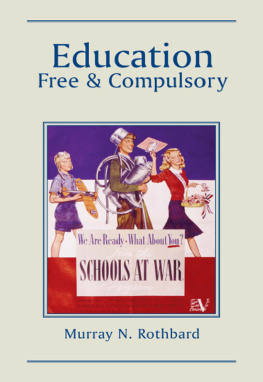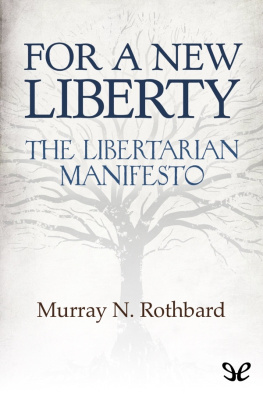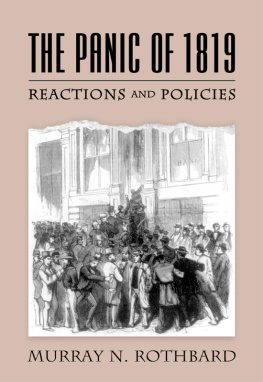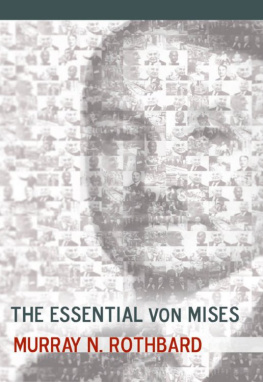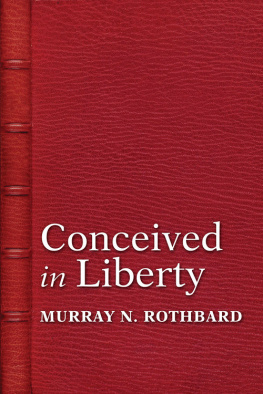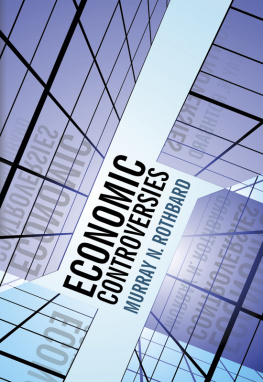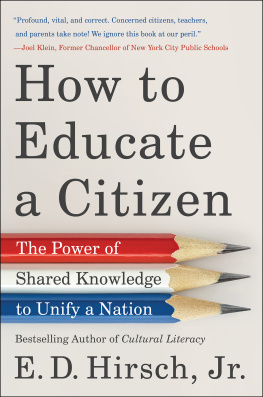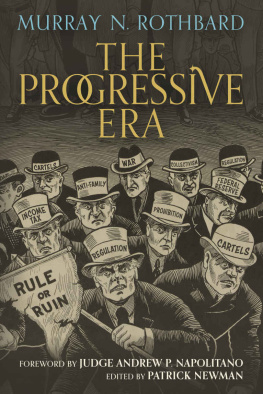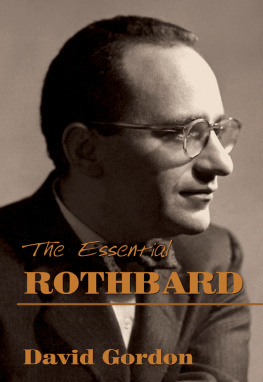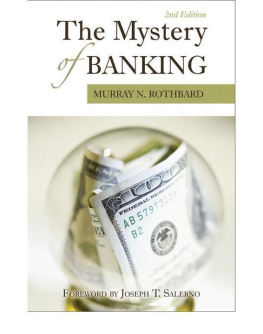Education
Free & Compulsory
Murray N. Rothbard
Ludwig von Mises Institute
Auburn, Alabama

This work was originally published in the April and JulyAugust 1971 issues of The Individualist, and then revised and published by the Center for Independent Education in 1979. This edition restores the original text. Thanks to Mises Institute summer fellow Candice Jackson for editorial assistance, and to Institute Member Richard Perry for the index.
Copyright 1999 by The Ludwig von Mises Institute.
All rights reserved. Written permission must be secured from the publisher to use or reproduce any part of this book, except for brief quotations in critical reviews or articles.
The US governments World War II school propaganda poster, reproduced on the cover, is an apt illustration of the States ideal for education.
Published by the Ludwig von Mises Institute, 518 West Magnolia Avenue, Auburn, Alabama 36832-4528.
ISBN: 0945466-22-6
TABLE OF CONTENTS
Preface
T he central concern of social theory and policy in the new millennium should be to redefine fundamentally the role of the state in its relations to individuals, families, communities. This must also include a rethinking of the means, methods, and institutions most suitable for the education of the child.
What urgently requires correction is todays dramatic imbalance between families and the state. It is an imbalance that overwhelmingly favors the controlling power of the political sphere relative to that of parents and children to seek out educational settings that are best suited to the full educational development of the individual.
What is at stake is nothing less than the very concept of what it means to live and thrive as a human being. Must people be controlled and coerced from the cradle by enormous political bureaucracies with preset agendas on who may teach and how, what we must learn and when? Or can people generally work out for themselves what is in their best interests and seek ways to make their interests consistent with the common good, rightly understood?
Another way to put the question is framed up perfectly in Murray N. Rothbards resplendent manifesto: is education to be conducted in an institutional setting of freedom, or must it be compulsorily financed and administered? It is an old question that dates back to the very beginnings of political philosophy, but one that is rarely discussed today, though it becomes especially pertinent in this time of rising violence and declining values in our public educational institutions.
To decide that government and not the family has the primary responsibility for overseeing the education of the child may, at first, appear to be a small concession. But as we have seen in this century, it is not easyand may in fact be impossibleto rein in political power once it gains control over schooling. Since the early 1930s, when the federal and state government became more aggressively involved in education, control has become incrementally more centralized.
For instance, in the year of my birth, 1932, there were 128,000 school districts in the United States, while today there are less than 15,000. This shrinkage and centralization of decisionmaking has gone on at the same time our student population has grown to twice the size. This is to say nothing of the hundreds of billions of dollars, taken from taxpayers and spent by local, state, and federal government on education, the result of which has been only to diminish the quality of their output.
Moreover, and exactly as Rothbard predicted nearly three decades ago, these institutions are increasingly imposing politicized, standardized, one-size-fits-all curricula that neither accommodate individual strengths nor correct for individual weaknesses. Before Goals 2000 and its dubious predecessors, Rothbard foresaw the way in which schools are used to impose a political agenda that in turn seeks to reinforce political support for official institutions. Many years before the astonishing increase in home-schooling, he argued that the ideal education was one-on-one, supervised by the parent.
Education continues to be one of the most politically charged issues in our national culture, and the conflicts over education in America are likely to grow more polarized so long as the political control grows ever tighter. Indeed, for centuries the political control of education has engendered social conflict, and even led to civil wars and revolutions. Isnt it time this system be completely rethought along the lines Professor Rothbard discusses? I believe so.
Despite all the talk about education reform, now decades running, this debate has not yet begun, primarily because the topical boundaries have been too narrowly drawn. With his sweeping and unflinchingly radical rethinking of the very structure of educational institutions, Professor Rothbard shocks us out of our stupor and calls us toward the total reconceptualization that is more necessary than ever.
Kevin Ryan
Emeritus Professor of Education
Director, Center for the Advancement of Ethics and Character
Boston University
The Individuals Education
E very human infant comes into the world devoid of the faculties characteristic of fully-developed human beings. This does not mean simply the ability to see clearly, to move around, to feed oneself, etc.; above all, it means he is devoid of reasoning powerthe power that distinguishes man from animals. But the crucial distinction between the baby and other animals is that these powers, in particular the ability to reason, are potentially within him. The process of growing up is the process of the development of the childs faculties. From a state of helplessness and incompetence such as few newly-born animals are burdened with, the infant grows up to the glory of the full stature of an adult.
Because they are immediately apparent to the senses, it is easy to overestimate the purely physical nature of these changes; the babys growth in height and weight, learning how to walk and talk, etc., may be viewed in terms of the isolated physical or muscular activities involved. The overwhelmingly important feature of the growing-up process is mental, the development of mental powers, or perception and reason. The child using the new mental powers learns and acquires knowledgeknowledge not only about the world around him, but also about himself. Thus, his learning to walk and talk and his direction of these powers depends upon his mental capacity to acquire this knowledge, and to use it. As the child exercises his new reasoning, as well as muscular powers, these powers grow and develop, which in turn furnishes an impetus for the childs further exercise of these faculties. Specifically, the child learns about the world around him, other children and adults, and his own mental and physical powers.
Every child coming into the world comes into a certain environment. This environment consists of physical things, natural and man-made, and other human beings with whom he comes in contact in various ways. It is this environment upon which he exercises his developing powers. His reason forms judgments about other people, about his relationships with them and with the world in general; his reason reveals to him his own desires and his physical powers. In this way, the growing child, working with his environment, develops ends and discovers means to achieve them. His ends are based on his own personality, the moral principles he has concluded are best, and his aesthetic tastes; his knowledge of means is based on what he has learned is most appropriate. This body of theory in which he believes, he has acquired with his reasoning powers, either from the direct experience of himself or others, or from logical deduction by himself or by others. When he finally reaches adulthood, he has developed his faculties to whatever extent he can, and has acquired a set of values, principles, and scientific knowledge.

